Laboratory Analyzers
According to their performance, the laboratory analyzers are classified into two automatic and semi-automatic models, according to the manufacturer, the differences between the analyser equipment is in the technical sheet or individual characteristics of the equipment, what is important is to have a reliable manufacturer that can give immediate answers to possible doubts or technical failures of the equipment; in this case we at KALSTEIN offer you high-end equipment and warranty with European recognition.
In a laboratory it is really important to understand how each equipment works, in the case of laboratory analyzers, the analyzers are classified according to their operation in : automatic and semi-automatic, what it shows is the speed with which it determines the tests that are required, the results that are desired to obtain, the analyzers of automatic laboratories, allow to facilitate the functions that are performed in it, unlike the semi-automatic analyzers, where the process requires more manual intervention and the operator to ensure the correct functionality of the equipment.
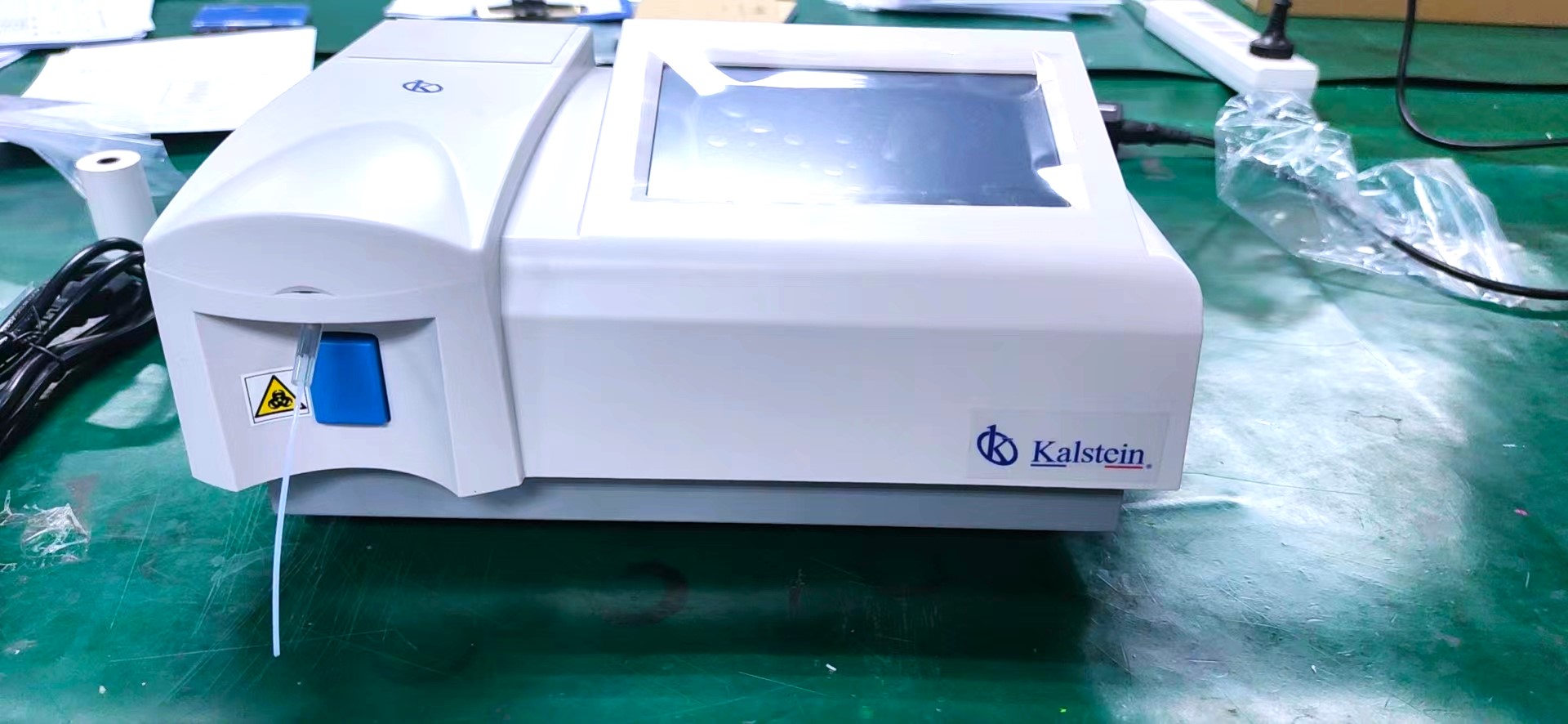
Types of Laboratory Analyzers a Laboratory May Need
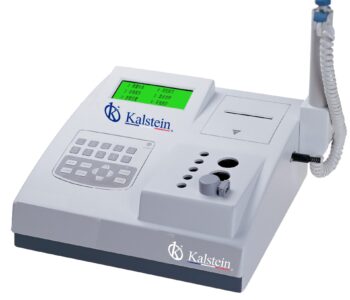
Coagulation Analyzer
It collects sample data through the principle of photo induction and multiple programmable tests can be set up with a large storage capacity for historical data.
It is convenient for medical institutions to implement thrombus inspection and hemostasis, they can also provide reference indices for the diagnosis of hemorrhages and thrombotic diseases, monitoring of thrombolysis, anticoagulation treatment and healing effects; with two reading channels, multiple programmable tests can be set up with a large storage capacity for historical data.
Hematology Analyzer
These kits are used for complete blood counts or blood counts, perform a quantitative and qualitative analysis of blood factors such as: red blood cells, erythrocytes, white blood cells, leukocytes, platelets and thrombocytes, are mainly used in laboratories of analysis of medical biology or in hospitals with hematology service.
In order to have a good performance of the analyser it is also necessary to have calibrators, control solutions, diluents and dyes, in this way it fulfills the general function of the equipment: to offer a high capacity diagnostic platform to which they can be linked to other analytical modules of biochemistry, immunology.
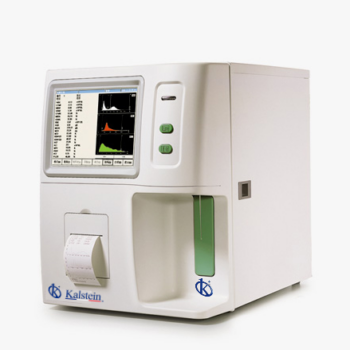
In Kalstein you can find the Ideal Analyzers for your Lab

Analyzer & Microplate Incubator Shaker YR06093
Compatible for Elisa Microplate or Cell Culture Plate. Temperature Display: Monochrome screen. Temp Range: 25~60℃...
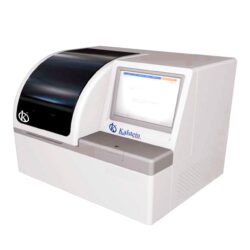
Automated Chemistry Analyzer YR06073
Automatic, Random Access. Up to 100 tests per hour. Reagent pre-heating, liquid level detection. Micro-volume for sample...
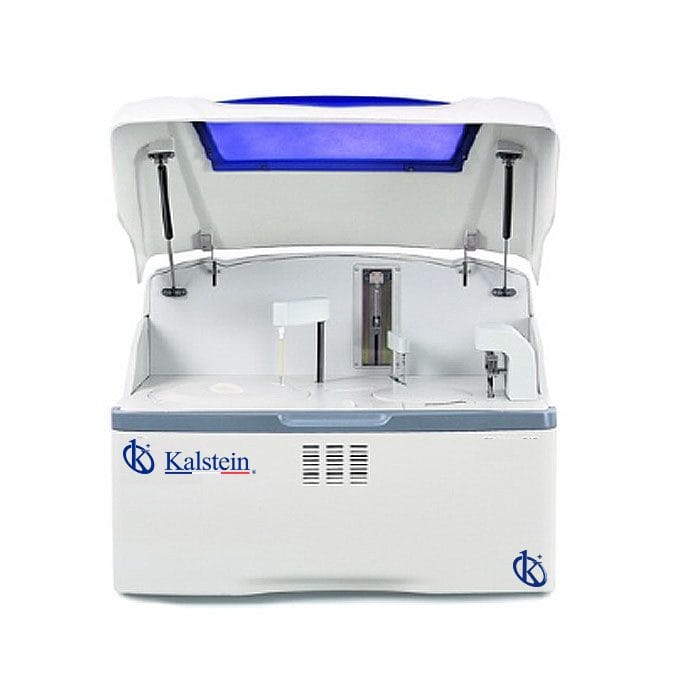
Fully Automatic Chemistry Analyzer YR06074
Automatic, Random Access. Automatic 8 steps washing system, Low carry over. Labor saving, simple operation...
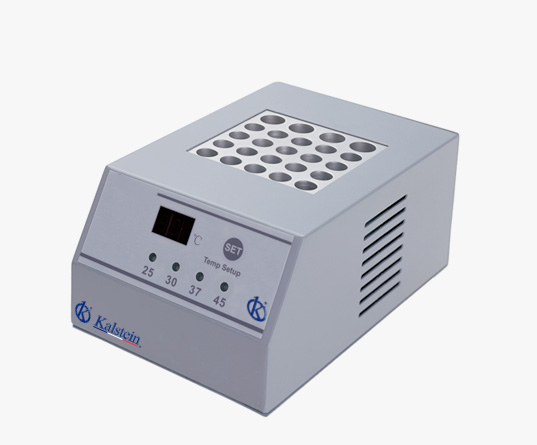
Portable Chemical Analyzer YR06092
Dry block heating. Compact size takes up minimum space. Both Φ1.3cm and Φ1.5cm tube supported. Digital LCD display...
Our Best Selling Analyzer
- Automated processing of up to 40 strips per run.
- High presicion volume dispensing.
- With incubation function,mulitiple temperature available.
- Test protocol up to 15 items, 20 protocols for each item.
- Suck-back reagent-save feature minimizes dead volume & cost.
- User-friendly software enables self-defined assay protocols.
| Model | YR06090 |
| Capacity | UP to 40 strips per run |
| Dispensing Manifold | 6 channels (additional 2 channels optional) |
| Dispensing Volume | 0.5mL -3mL, 0.1mL adjustable. Accuracy <+5% |
| Incubation Temperature | 25 ‘C/30 C/37 C/41 C/47 C |
| Temperature Control Accuracy | ±1.5°C |
| Temperature Control Fluctuation | ≤+0.2°C |
| Incubation Time | <48hours, 1 minute adjustable |
| Incubation Sway Frequency | 0Hz/0.1Hz/0.25Hz/0.5Hz/1Hz adjustable |
| Display | LCD Display |
| Alarm and Notice | Waste bottle alarm, Voice alarm after testing |
| Input/Output | RS-232, USB |
| Operating Environment | Temperature : 15’C -35°C; Humidity: ≤80% |
| Power Requirement | AC 100V-240V,50Hz/60Hz |
| Dimension L×W×H(mm) | 600×450×400mm |
| Weight | 22.5KG |
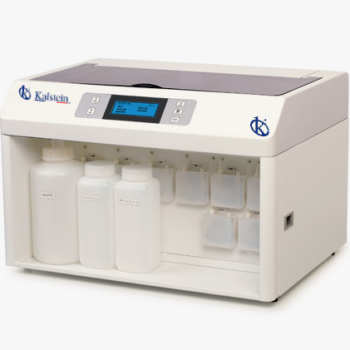
Analysis of the best Analyzers for your Laboratory
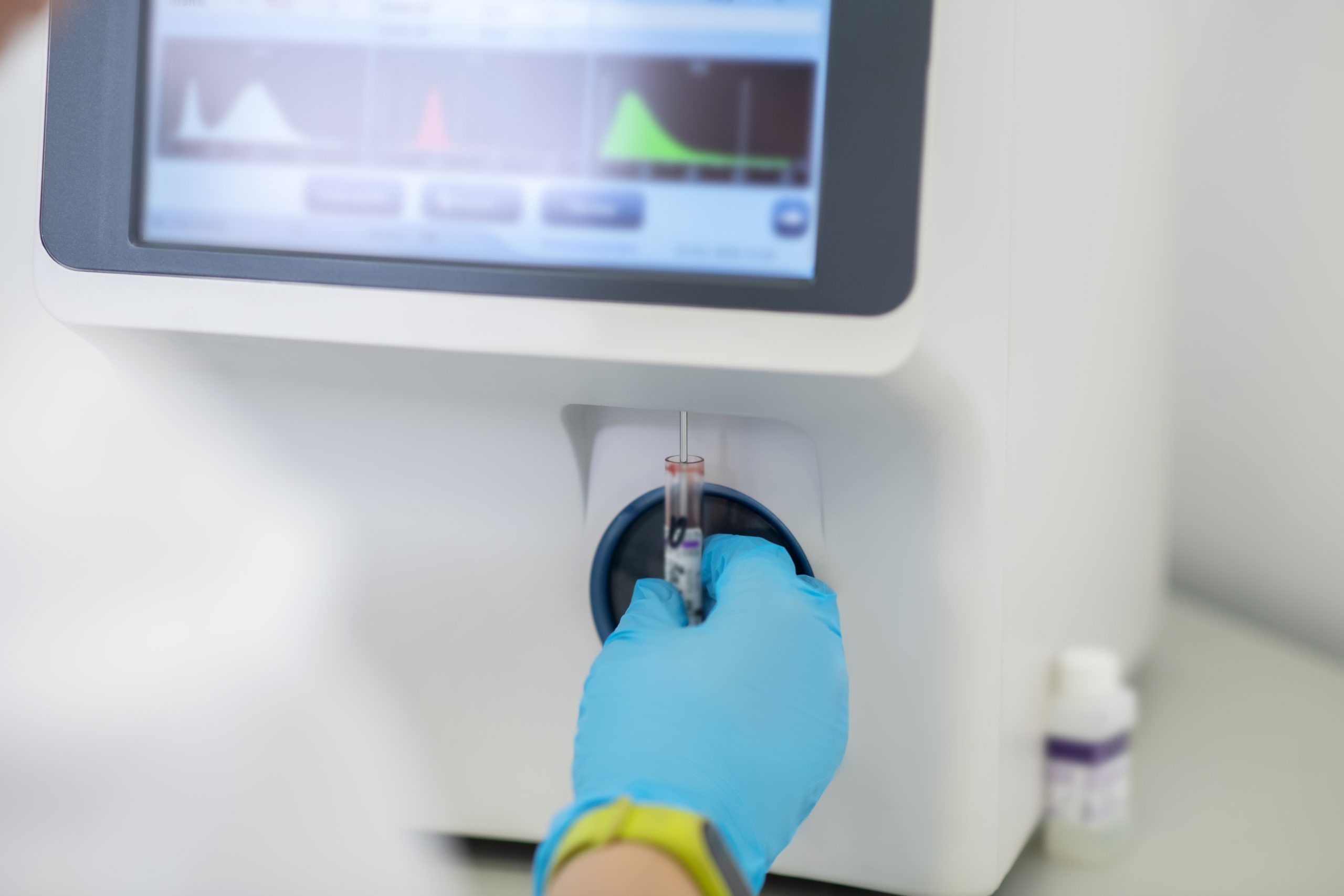
Urine analyzers: what are they used for?
Urine analyzers are laboratory equipment that perform the automated analysis of several essential parameters...
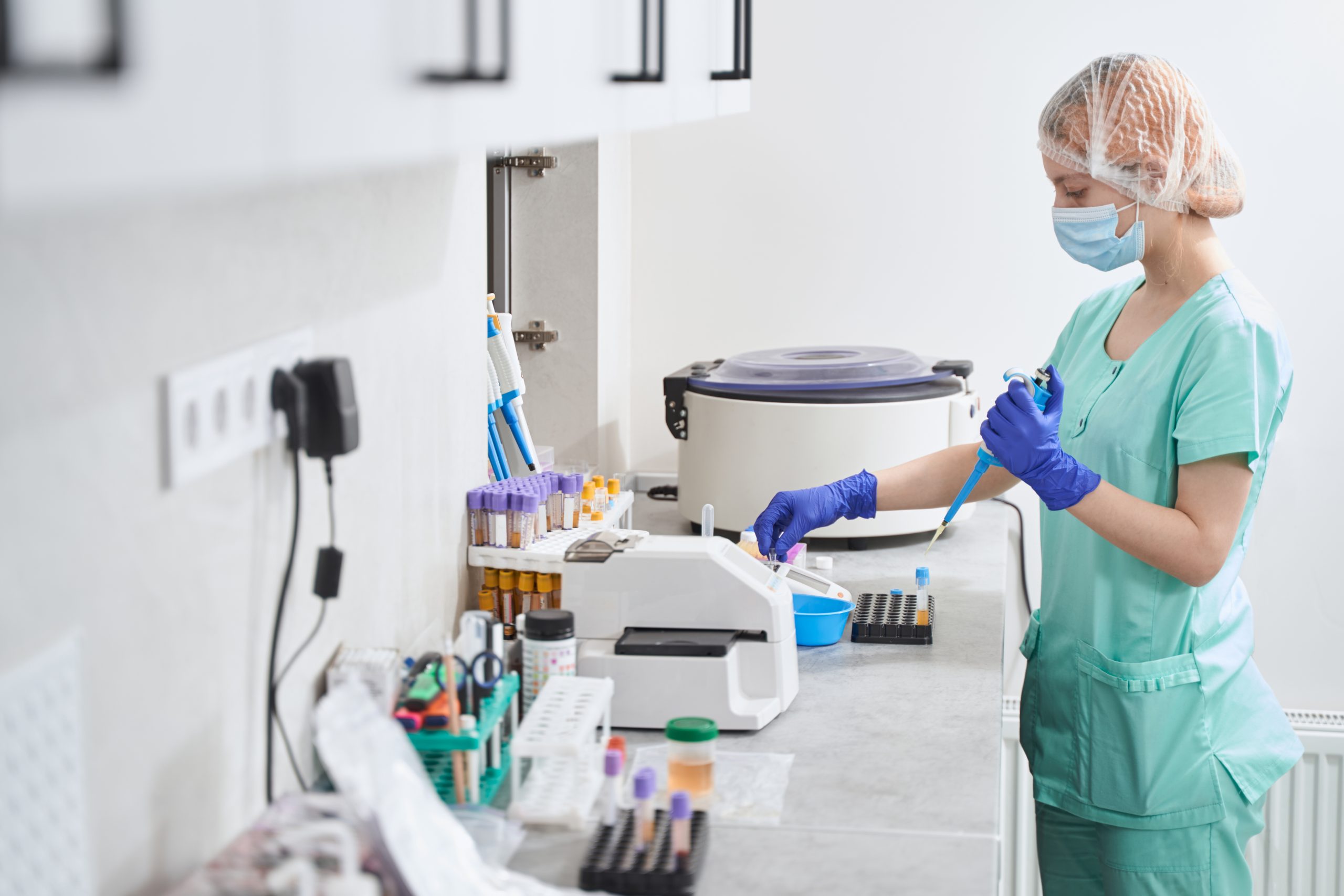
Types of clinical laboratory analyzers
A clinical laboratory is an institution equipped with the necessary means to carry out analyzes that contribute...

How does a Clinical Chemistry Analyser work?
The chemistry analyser is a clinical laboratory tool, designed to do blood tests, from 125 to 1600 photometric...
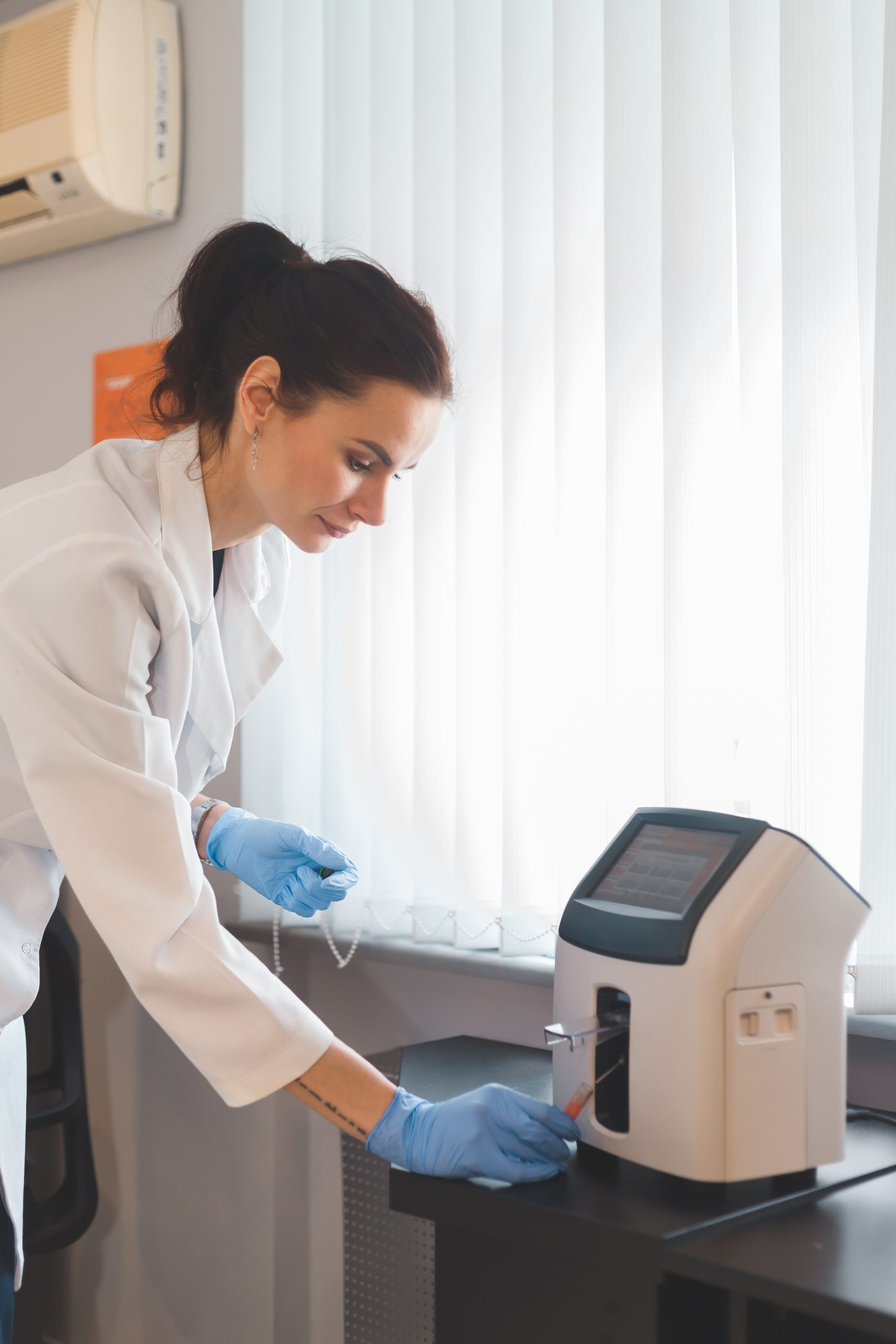
What are the different types of hematology analyzers?
These kits are used for complete blood counts or blood counts, perform a quantitative and qualitative analysis...
Catalog of Analyzer models on offer
-
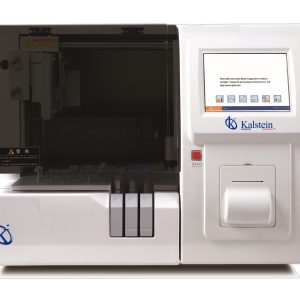
Automated Coagulation Analyzer YR6082
-
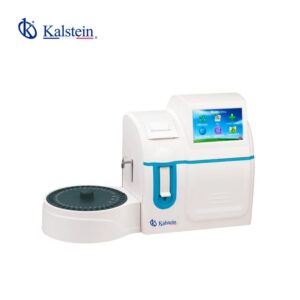
Electrolyte Analyzer YR06407// YR06417
Select options This product has multiple variants. The options may be chosen on the product page -
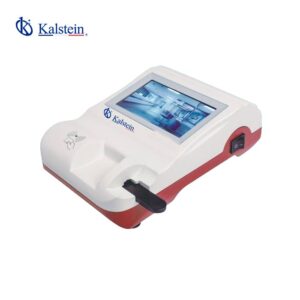
HbA1c Analyzer YR05129
-
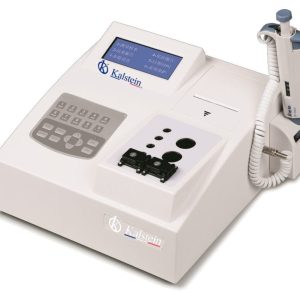
Automated Coagulation Analyzer YR05118
-
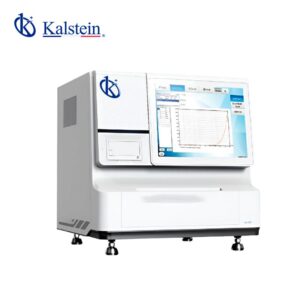
Chemiluminescent Immunoassay Analyzer YR06388
-
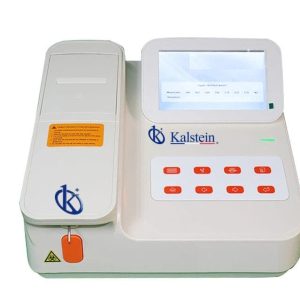
Semi-auto Chemistry Analyzer YR06078
-
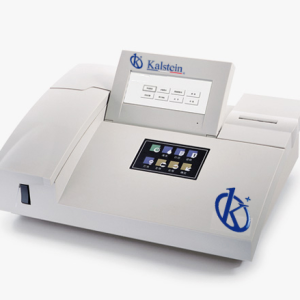
Semi-auto Chemistry Analyzer YR05114
-
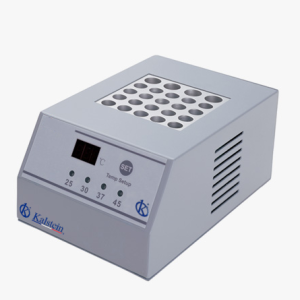
Portable Chemical Analyzer YR06092
Guides to becoming an Analyzer expert
What are the different types of clinical chemistry analyzers that exist?
This type of analyser is also known as biochemistry analyzers, they are required equipment to determine the existing...
What types of reagent analyzers are available in laboratories? - Kalstein
In a laboratory it is really important to understand the usefulness of each equipment, in the case of reagent analyzers...
Hematology analyzers and biochemistry analyzers: what are the differences?
The differences between these teams are mainly focused on their applications, being hematology analyzers devices...
What are the different types of laboratory analyzers that exist?
We can find different types according to their applications or operation, and they may even have different names to refer to the same equipment, we can name them as laboratory analyzers, clinical analyzers or simply reagent analyzers.
Analyzer running
A hematology analyzer or hematology analyzer is a device that allows you to perform a complete blood count. In other words, it performs a qualitative and quantitative analysis of red blood cells (erythrocytes), white blood cells (leukocytes), and platelets (thrombocytes).
A hemogram reflects all the elements or components of the blood, reflecting their number or proportion in the individual, as well as the presence of cellular abnormalities of morphological origin or the presence of pathological cells. This is one of the most frequently requested laboratory tests and is part of the basic study required for diagnostic guidance and evaluation of patients, since it offers an overview and can serve as an indicator of anemia, infectious diseases, clotting problems, among others.

Frequently Asked Questions about Analyzers
How to know the prices of Analyzers?
To know the price of the Analysers we invite you to send us an email with your request through the contact form..
What are the lead times of the Analyzers?
- If the equipment of your interest is in stock or if it must be manufactured.
- The type of freight you have chosen, this may be; air or sea.
How to make a purchase of Analyzers?
- By email: [email protected]
- By telephone: +33 (0) 1 78 95 87 02
- E-commerce: Via Kalstein's official website in your country.
How does the warranty work?
Can I request a quote online?
Of course, you can request a quote for the Kalstein team of your interest, directly from our official website. Once you have identified your preferred model, click HERE
